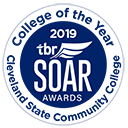Teacher Assistant
Teacher Assistants
25-9041.00
Projected growth
$19,800
Perform duties that are instructional in nature or deliver direct services to students or parents. Serve in a position for which a teacher has ultimate responsibility for the design and implementation of educational programs and services.
- Provide extra assistance to students with special needs, such as non-English-speaking students or those with physical and mental disabilities.
- Supervise students in classrooms, halls, cafeterias, school yards, and gymnasiums, or on field trips.
- Tutor and assist children individually or in small groups to help them master assignments and to reinforce learning concepts presented by teachers.
- Enforce administration policies and rules governing students.
- Discuss assigned duties with classroom teachers to coordinate instructional efforts.
- Instruct and monitor students in the use and care of equipment and materials to prevent injuries and damage.
- Observe students' performance, and record relevant data to assess progress.
- Present subject matter to students under the direction and guidance of teachers, using lectures, discussions, or supervised role-playing methods.
- Prepare lesson materials, bulletin board displays, exhibits, equipment, and demonstrations.
- Organize and supervise games and other recreational activities to promote physical, mental, and social development.
- Distribute teaching materials, such as textbooks, workbooks, papers, and pencils to students.
- Organize and label materials and display students' work in a manner appropriate for their eye levels and perceptual skills.
- Use computers, audio-visual aids, and other equipment and materials to supplement presentations.
- Attend staff meetings and serve on committees, as required.
- Type, file, and duplicate materials.
- Laminate teaching materials to increase their durability under repeated use.
- Provide disabled students with assistive devices, supportive technology, and assistance accessing facilities, such as restrooms.
- Carry out therapeutic regimens, such as behavior modification and personal development programs, under the supervision of special education instructors, psychologists, or speech-language pathologists.
- Assist in bus loading and unloading.
- Maintain computers in classrooms and laboratories and assist students with hardware and software use.
- Distribute tests and homework assignments and collect them when they are completed.
- Grade homework and tests, and compute and record results, using answer sheets or electronic marking devices.
- Take class attendance and maintain attendance records.
- Prepare lesson outlines and plans in assigned subject areas and submit outlines to teachers for review.
- Participate in teacher-parent conferences regarding students' progress or problems.
- Conduct demonstrations to teach skills, such as sports, dancing, and handicrafts.
- Plan, prepare, and develop various teaching aids, such as bibliographies, charts, and graphs.
- Requisition and stock teaching materials and supplies.
- Operate and maintain audio-visual equipment.
- Collect money from students for school-related projects.
- Calendar and scheduling software — High School Scheduling and Transcript HSST

- Computer based training software — Children's educational software; Text to speech software

- Data base user interface and query software — Automate the Schools ATS; Blackboard
 ; Data entry software
; Data entry software  ; Special Education Student Information System SESIS (see all 5 examples)
; Special Education Student Information System SESIS (see all 5 examples)
- Device drivers or system software — Screen magnification software; Screen reader software

- Electronic mail software — Email software

- Internet browser software — Web browser software

- Office suite software — Microsoft Office

- Presentation software — Microsoft PowerPoint


- Spell checkers — Hand held spell checkers

- Spreadsheet software — Microsoft Excel


- Word processing software — Microsoft Word
- Active Listening — Giving full attention to what other people are saying, taking time to understand the points being made, asking questions as appropriate, and not interrupting at inappropriate times.

- Speaking — Talking to others to convey information effectively.

- Social Perceptiveness — Being aware of others' reactions and understanding why they react as they do.

- Critical Thinking — Using logic and reasoning to identify the strengths and weaknesses of alternative solutions, conclusions or approaches to problems.

- Instructing — Teaching others how to do something.

- Service Orientation — Actively looking for ways to help people.

- Coordination — Adjusting actions in relation to others' actions.

- Learning Strategies — Selecting and using training/instructional methods and procedures appropriate for the situation when learning or teaching new things.

- Monitoring — Monitoring/Assessing performance of yourself, other individuals, or organizations to make improvements or take corrective action.

- Reading Comprehension — Understanding written sentences and paragraphs in work related documents.

- Active Learning — Understanding the implications of new information for both current and future problem-solving and decision-making.

- Judgment and Decision Making — Considering the relative costs and benefits of potential actions to choose the most appropriate one.

- Writing — Communicating effectively in writing as appropriate for the needs of the audience.










